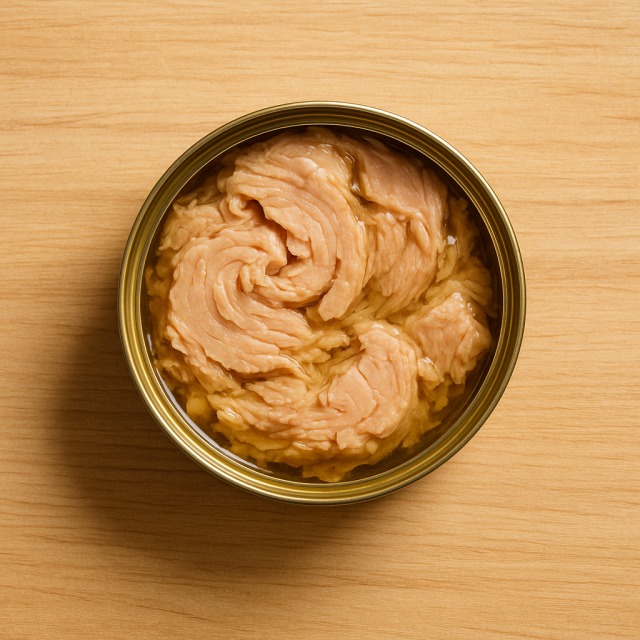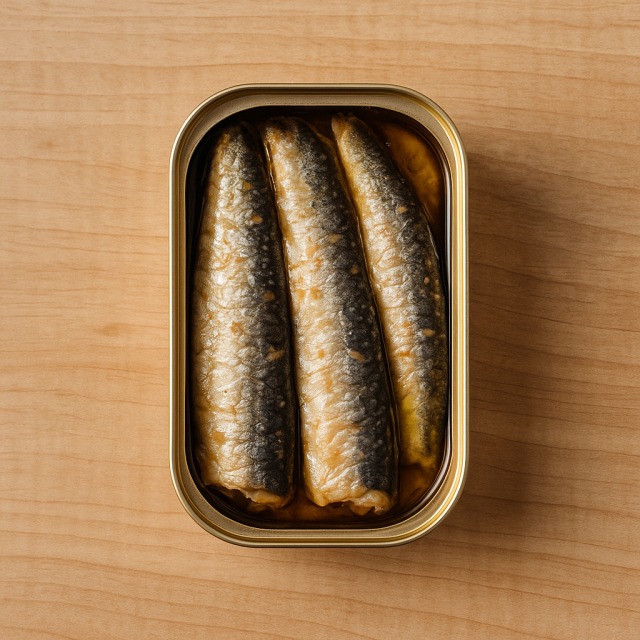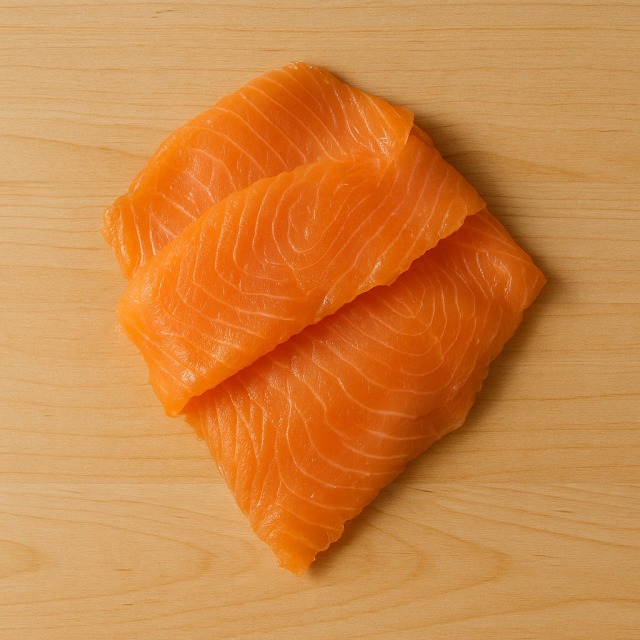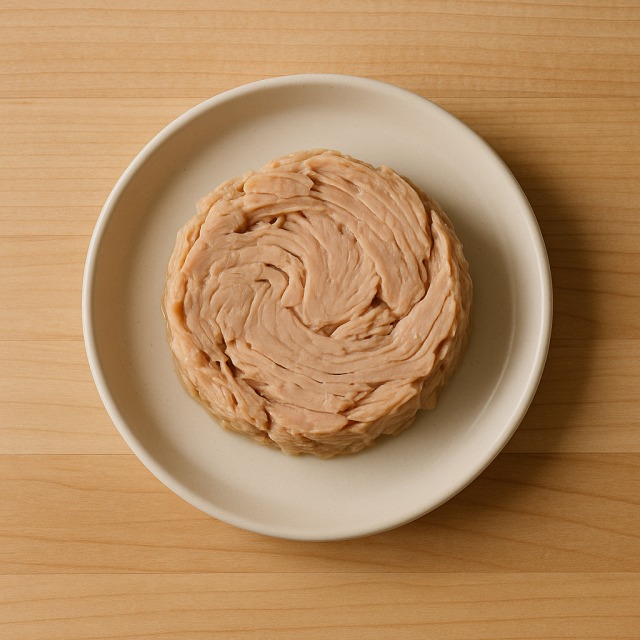Calorie Chart / Fish / Tuna
How Many Calories Are in Tuna?
Calculation of the nutritional value & Recommended Dietary Intake of tuna
For g and a calorie requirement of kcal
| Calories 204 kcal | Proteins 38 g | Lipids 6 g | Carbohydrates 0 g |
| 10% | 51% | 9% | 0% |
Health benefits of tuna

Tuna - 100g
Calories 136 kcal
Proteins 25 g
Lipids 4 g
Carbohydrates 0 g
Tuna is considered a moderate-calorie fish (136 kcal/100 g), making the word "calories" central when comparing animal proteins. Thanks to this reasonable calorie level, tuna offers a favorable protein-to-calorie ratio for people wishing to control calorie intake without sacrificing satiety. Beyond calories, tuna supplies about 25 g of high-quality protein per 100 g, rich in essential amino acids needed for muscle repair.
Its lipid profile is dominated by omega-3 fatty acids (EPA and DHA), known to support cardiovascular health by helping maintain normal triglyceride levels; these benefits are obtained without an excessive calorie burden. Vitamin-wise, tuna stands out for vitamin B12, vitamin D, and niacin (B3). Mineral contributions include selenium (antioxidant cofactor), phosphorus for bone health, iodine for thyroid function, and a useful dose of potassium. All these elements come packaged in a food whose moderate calorie density makes it attractive for both weight management and sports nutrition plans focused on controlling calories without compromising nutrient density.
Because tuna accumulates mercury, pregnant women and young children should limit frequency—another reason to vary fish choices. Still, tuna's long maritime history, from Mediterranean antiquity to modern Japanese sashimi, illustrates how seafarers valued its concentrated nutrients relative to calories long before the term "calories" existed.
Tips for incorporating tuna into a balanced diet
To keep calories in check while preserving flavor, favor grilling or searing tuna steaks with a brush of olive oil and a squeeze of lemon. Pair the fish with steamed asparagus or a crunchy salad of tomato, cucumber, and herbs: this combination adds volume without many additional calories and boosts vitamin C to aid iron absorption from tuna.
For a balanced one-bowl lunch, build a tuna poke over chilled rice, diced avocado, and shredded carrot. Drizzle with soy sauce and sesame seeds; the starch moderates the calorie spike, the fats from avocado increase satiety, and the colors make mindful eating easier. Counting calories becomes simpler when every ingredient is visible.
If you crave warmth, fold flaked tuna into a light pasta primavera with broccoli florets and a touch of pesto sauce. The vegetables dilute calorie density, while basil aromas mean you need less salt. In all preparations, watch added fats—every extra tablespoon can push calories upward—even though tuna itself starts at just 136 calories per 100 g. Finally, alternate tuna with species such as salmon or mackerel to avoid monotony, compare their calorie profiles, and broaden omega-3 sources.
Frequently Asked Questions
- How many calories in tuna?
- There are 136 kcal per 100 g.
- Is tuna considered low-calorie compared with other fish?
- Tuna is moderate in calories; it contains fewer calories than fatty fish like salmon (around 200 kcal/100 g) but more calories than very lean choices such as cod.
- Does canned tuna in oil have the same calories as fresh tuna?
- No; tuna packed in oil absorbs the oil and can double the calorie count compared with fresh tuna or tuna in water, so always read the label if you track calories.
- How do cooking methods influence tuna calories?
- Grilling, baking, or steaming add almost no extra calories, whereas frying or preparing tuna with creamy sauces can raise calories significantly.
- Can tuna help athletes meet protein goals without exceeding daily calories?
- Yes, its 25 g of protein per 136 calories makes tuna one of the most protein-dense foods, helpful for muscle recovery while managing total calorie intake.
Similar foods
Information provided by Calorie Menu may contain inaccuracies or errors. It cannot, under any circumstances, substitute medical advice or medication.










